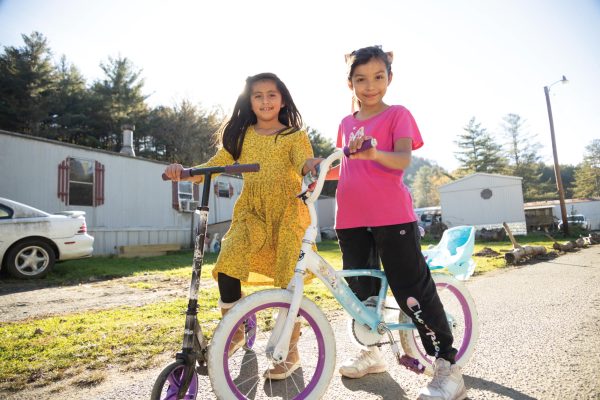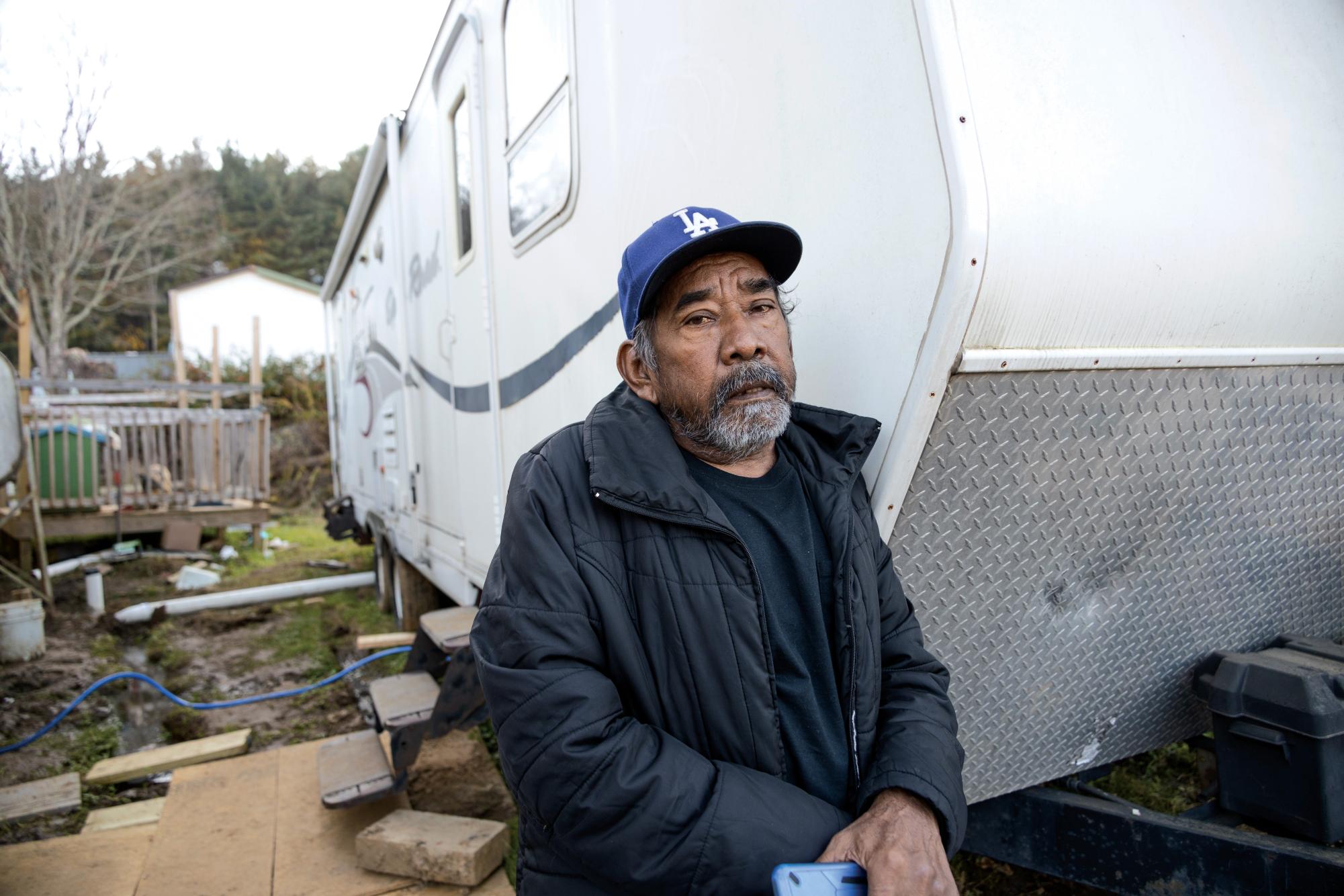Editor’s note: Resident interviews were conducted in Spanish. Direct quotes were translated to English. The Spanish version of this story can be found here.
Following the aftermath of Hurricane Helene, the Town of Boone returned to normalcy with lifted curfews, re-opened shops and restaurants and resumed operations at App State. However, the same cannot be said about one community, Bradford Park, located just a seven-minute drive from downtown.
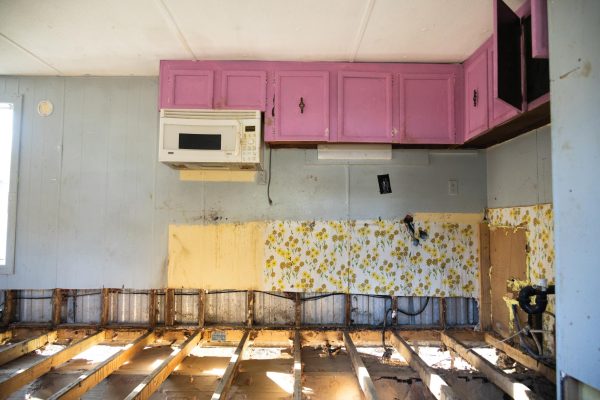
Over a month after the flooding, wall panels, insulation, appliances and children’s toys like scooters and soccer balls can be found in piles of rubble outside the mobile homes that have been completely gutted and turned inhospitable. The majority-Hispanic community was faced with Helene’s most catastrophic repercussions, leaving many people displaced.
According to FEMA’s Citizenship and Immigration Status Flyer, no disaster assistance can be provided for people who are not considered U.S. citizens or qualified non-citizens which include legal permanent residents, those granted asylum or refugee status among other restrictions.
Although the Bradford Park community has received help from local organizations, the language barrier still remains an obstacle for many in the Hispanic community who are unable to reach the right resources to get the help they need, placing them at a huge disadvantage.
Francisco Ortíz, a resident of Bradford Park, called Sept. 27 “a day I never saw coming.” His mobile home is located alongside Mutton Creek, a tributary of the South Fork New River, which placed him directly in the path of Helene’s flooding.
His family consists of his 2-year-old son, 6-year-old daughter, wife and mother-in-law. He and his family have lived in Boone for over two years.
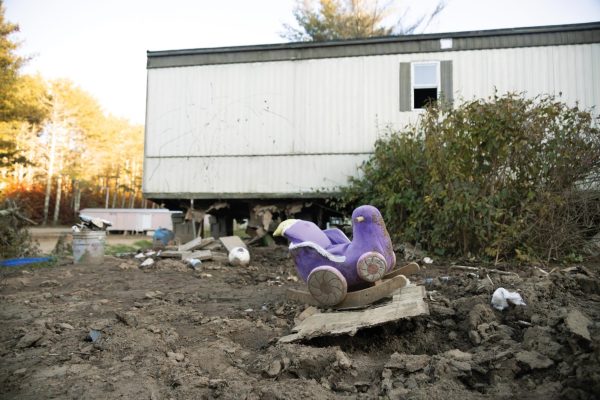
By 7:30 a.m. on Sept. 27, the water levels reached his mobile home.
“In less than 10, 20 minutes, it was filling with water,” Ortíz said. “We didn’t have time to take more stuff, the only things we were able to get was a little bit of the kids’ clothes.”
As the creek rose, all Ortíz could do was sit back and watch as his home washed away.
“I felt so much helplessness, truly,” Ortíz said, his voice cracking with emotion. “What can I say, so much sacrifice, well, all the work one does here as a Hispanic in the community.”
In the weeks following the flooding, Ortíz and his family have been forced to move in with their relatives in tight living quarters.
“My kids made their home there and we’re battling to return,” he said.
Ortíz, who works in construction and remodeling projects, has dedicated himself to fixing his mobile home and returning to the place he called home. He has ripped out the floors, wall panels and insulation and bought new materials to rebuild the mobile home.
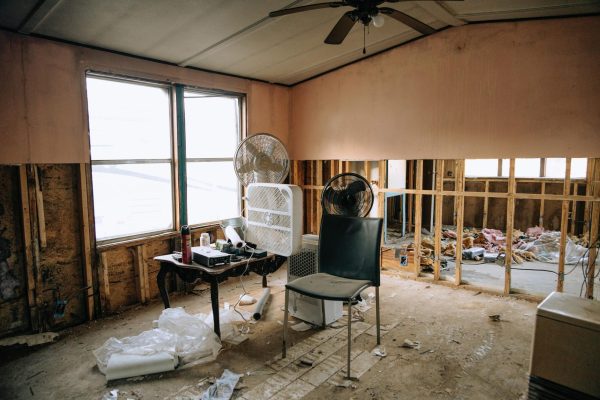
“We’re about 80% done with the repairs,” he said.
While much of the work has been done on his own, Ortíz has received help from local churches who have sent laborers to help him with the repairs. He said he was surprised to find such a helpful community.
“I wanted to do it, repair the trailer, remove the wet floors, the damaged panels,” Ortíz said. “I’m grateful for the community, truly, it’s given me so much support.”
Martín Ramírez has lived at Bradford Park with his wife for over a decade. He’s been in Boone for 14 years since he moved from Guanajuato, Mexico, in search of “greater job opportunities.” He described living in Boone as “beautiful” and “tranquil” however, he saw his whole world turn upside down in Helene’s wake.
Ramírez’s home is completely inhabitable after the flood. He lost his mobile home as well as everything inside it including appliances, TVs and clothes. With a broken ankle and undergoing dialysis treatment, there was little Ramírez could do to save his personal belongings in all the chaos.
He and his wife were sleeping in their car for weeks after the storm until they received an RV camper that was donated by a local church.
Despite the severe damages his mobile home suffered, Ramírez said he is still being charged rent for the space by the landlords of Bradford Park.
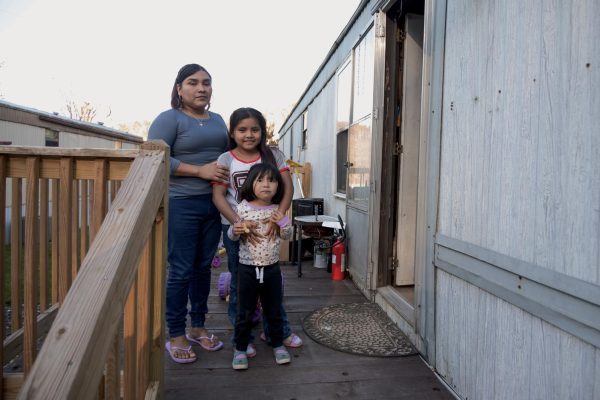
Saraí Ambrosio, another resident of Bradford Park, was out of town the day Helene hit, but when she came back, her community was no longer the same.
“It brought me so much sadness seeing my home destroyed,” she said. “Seeing all the fallen trees, it was sad and shocking at the same time.”
Ambrosio and her family had no choice but to move to their relatives’ home.
“It’s not the same being in someone else’s home and not your own,” she said.
Over a month after the storm, Ambrosio and her family are still in the process of recovering all of their belongings. Her husband, who is a painter, has been working to “slowly buy all the materials needed to go back into their home.” Their car was also totaled due to water damage.
Despite this, Ambrosio is grateful her family stayed safe during the storm saying, “Everything that was damaged was material. That can be recovered but the family can’t.”
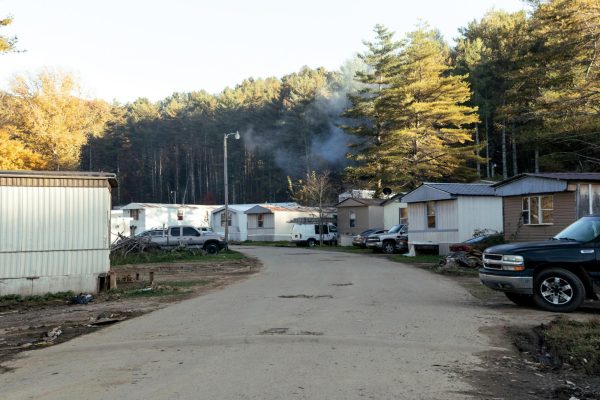
After the storm, parishioners from Harvest House Church have supported members of the community like Ortíz and Ramírez by providing them with donated RVs for them to stay in while they are displaced.
Bianca Ringel, Harvest House’s youth director and only Spanish speaker, has been able to communicate between the residents and members of the church to provide them with as much aid as possible.
“Tonight we’re helping them settle in for the evening making sure they have what they need,” said Celia Marsh of Harvest House.
Volunteers like her bring back full propane tanks to ensure the residents have hot water as the community prepares for winter.
Harvest House Church is organizing a fundraiser to buy new mobile homes for the community.
While the outside Boone community has been able to make a resilient recovery, both the ineligibility to get government financial assistance and the language barrier makes it continually difficult for them to reclaim their community from the destruction of Helene.
Even with all of the severe damages, the residents of this community are hopeful and determined to have their lives return to what they were before Hurricane Helene.
